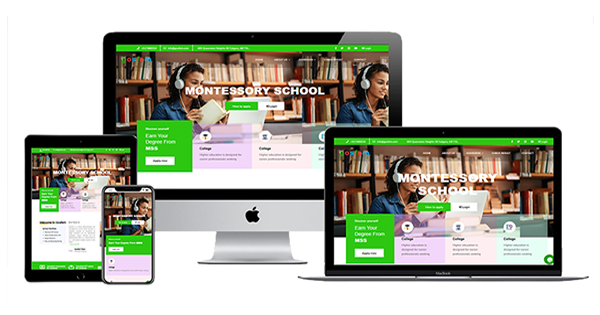
The task of managing a library is not easy. Librarians look after thousands of books and manage the catalog. They also ensure that the needs of all readers are met on time. They work with different stakeholders-students, academicians, and other library staff to ensure everyone gets what they need. To manage the library smoothly, librarians also need to have specific skills. For example, they must know the art of managing and working in a team. With various responsibilities in hand, the task of managing a library becomes even more challenging. However, the workload can be decreased by using an effective library management system. With the help of software for library management, librarians can improve their efficiency and cater to different stakeholders hassle-free. Before understanding the applicability of this software, let us know the key responsibilities of a library manager.
- Ordering books, journals, and other learning materials
- Recording and keeping track of library resources
- Advising educators about the books they can use for their courses
- Ensuring every learner or reader gets access to the required resources on time
- Working on the requests from students, staff, and other library users
- Managing library resources
- Making and managing library budget
- Promoting library resources
Managing all these tasks single-handedly can be tiring and may make the job monotonous. Therefore, librarians are suggested to use automation to make the processes more efficient. By using a library management system, library managers can make the job easier for them and the book lovers around them.
Implementing a library management system means digitizing the work for all stakeholders. Here are a few features that an efficient library management system must have.
The main features that any educational institution can look for before investing in a library management system are:
An efficient library management system provides information on the list of books available in the library. Stakeholders can search for their favorite books by entering keywords like authors, titles, racks, or genres. The system simplifies the book return and borrowing facilities. With the help of this system, librarians can manage piles of books, research papers, and magazines with a few taps.
Traditionally, librarians have to go through huge piles of books to find a particular book. They manually search for the available books and then allocate them to the users. However, with an automated library management system, they can easily manage the book request without facing roadblocks. Moreover, the system should also provide information on book availability. It must inform users if the book is currently available or is issued to someone else.
The system should manage all the libraries in an institute efficiently. Many educational institutes have multiple libraries to facilitate a better learning environment. However, managing those books stacks and keeping track of book issues and requests become troublesome in such cases. Therefore, having a library management system on the side can make the task easy. It provides management with complete summaries data of all the libraries.
Traditionally, students and other users looking for a book need to roam from one corner to another of the library. It consumes their time and effort. Then they stand at the library counter to get their book issued. All these hassles can be ignored by adopting a library management system. The software enables its users to search for any book at their fingertips. Users can enter the data on the system to know if the book is available.
With the help of a catalog, management can get accurate information on the status of each book. They can understand if the books are available, borrowed, reserved, or lost. Moreover, the management can keep a count on the number of books by checking the booking status.
Most of us are too busy to remember the exact date of returning the books to the library. However, the library management software reminds us about the due date. The admins and school management can send notifications through e-mail and SMS before the due date to users.
The library management software must be easily accessible to everyone from any location. It must ensure that users can use the system through their mobile devices and laptops. Improving the accessibility of the software will ease the work of library managers and other stakeholders.
A library management system loaded with the features mentioned above is a must-have for every educational institution. It effectively manages book requirements and provides the best user experience to all stakeholders.
Having a digital system for managing the library offers equal benefits to all stakeholders. Institutes can get the following advantages from a library management system.
Time-saving
The automation of activities like book and catalog management, easy book return, and hassle-free book search saves time for librarians, students, and other users. Moreover, book lovers do not need to be in line for hours to return or collect their books. Also, the system saves librarians from manual data entry procedures.
Improved productivity
The roles and responsibilities of a library manager have increased over the years. Doing repeated tasks can make their job dull. Moreover, the risk of omissions in record keeping is high due to manual data entry. With the help of an automated library system, they can improve their productivity. The entire operations of a library can be managed efficiently with this software. As the system takes care of most work, librarians can focus on other essential tasks. They can complete those tasks on or before time, thus enhancing their productivity at work.
Better management
Instead of keeping a record of all books, research papers, and other learning materials manually, the library management system allows librarians and other staff to manage book records digitally; therefore, enhancing the chances of better management of course material.
Better library functions
Library management software ensures better library functions as it improves the efficiency and productivity of the library staff. They can manage the educational resources effortlessly with a few finger taps.
To achieve maximum benefits, school admins must select the best software. They can contact different vendors to search for the software available in the market. Alternatively, admins can contact Gosfem to get library management software and streamline the book management activities.
A library management system aims at increasing the operational efficiency of a library at reduced costs. This automated system streamlines the processes involved in library management. As a result, repetitive tasks and chances of errors are eliminated. With the help of this system, librarians can automate activities like book purchasing, cataloging, indexing, circulation recording, and stock checking. This system is perfect for all educational institutions that wish to maintain minimum operational costs.
Managing a library manually is a labor-intensive task. Also, it involves huge paperwork which disturbs the ecological balance. As most schools and colleges are taking eco-conscious steps, a library management system is a must-have software as it promotes sustainability. Moreover, having this system in place also reduces the need for manpower and stationery, thus reducing the overall operational costs.
The system works for both librarians and users. In a few simple steps, they can search for the available books. In addition, librarians can remove or edit the database. Traditionally, library managers needed a day or two to check and maintain book stocks. But this system allows stock checking and book verification to be done in a few hours.
Library management systems are designed to maintain book records and help users who love spending time in libraries. This system manages book movements and maintains records of all the members registered in a specific library. The design of a system depends on criteria like the requirements, people involved, the content of the operation, and the activities to be performed.
A library management system is designed to search books using different keywords like the author, book titles, or subjects. The system should find a book easily through the unique identification code and the rack number for each book. Moreover, the system keeps a count on the number of days a user has kept the book with themselves. It also limits the number of books that can be taken by a user at a time. In addition, the library management system must be able to generate fines if books are not submitted within the due date.
Another aspect that needs to be considered when designing a library management system is the different aspects of a library. The system should be able to consolidate the name of the library, book details, member details, membership cards, book reservation and lending, notifications, book racks, and catalog in the form of a class diagram. Moreover, the system should be able to divide the functions into specific tasks.
To be able to serve all users efficiently, the library management system should be user-friendly and cost-effective. Moreover, it should be in sync with the establishment’s needs and work with the existing technology.
Various data points are there in a library, including assets and membership details. The system should be able to manage all the data. A library management system records details on reading and reference materials available in the library. Moreover, the system also takes care of membership information, lending details, and renewal dates.
Software that is enabled with RFID and barcode reader is more suitable for educational institutions. Librarians can scan the barcode when lending books. This helps in maintaining the records of the books available in the library at a given point in time. Moreover, this scanning process makes inventory management easier for librarians. With this system, librarians can track the number of books available on the shelf. In addition, they can know the number of books in stock, in circulation, missing, or to be ordered.
Suitable software for library management should also provide information on the library membership. It will help if the system provides information about members, fees collected, pending payments, and overdue fines. The system should also notify users about their book return and renewal dates.
Managing a library requires effort and time. Moreover, the manager has to take care of multiple processes. The tasks require planning, decision-making, organizing, collecting, and disbursing information. In addition, a librarian must know how to control and process various information.
Before setting up the library functions, the management needs to make robust plans. They must have a clear objective for running the library. Moreover, they should know their audiences and who they want to serve. It is vital to select the members because the book selection in different categories depends on the interest of library members. Another important criterion that needs to be taken care of is setting a library budget. The management should decide on a budget for the library. Moreover, library maintenance should be scheduled frequently. The librarian also has to take care of the inventory and the books in circulation.
The above-mentioned activities need to be performed at frequent intervals for a smooth library operation. Traditionally, these activities were performed manually, but today things have changed because of automation. With the help of advanced software for library management, all operational activities can be managed with great ease.
Check-list for selecting a library management system
Admins and other decision-makers need to select the best software for their institute. The selection of this software depends on the type of library that needs to be automated. Before considering automation, librarians and other decision-makers must know the size of the collection of books, the type of library, budget, staff size, and the compatibility of the system with the technology in use. Some other things to consider are:
- Patron-facing interface
The objective of a library is to help users find the right books and let them expand their existing knowledge base. A library management system allows users to search for relevant books using specific keywords. Moreover, the system should have filtering options and easy-to-use icons.
-Product conformation
The system should handle all the tasks like a winner. The platform should ease the task of managing book catalogs and maintaining book stocks. Moreover, the library management system must be flexible to suit the needs of its stakeholders.
-Training and support
Before installing the library management system, vendors should provide training to admins, librarians, and other stakeholders. They should provide 24/7 technical support and demonstrate the product to the users.
-Vendor track record
Admins and other decision-makers should check the track record of their shortlisted vendors before installing the software. They should demonstrate the product to the users and install the software on the computer systems.
-Accessibility
The system should allow school libraries to view their student database from any device and at any point in time. There must be a central database to manage student information. The software should be accessible from any place having a stable internet connection.
-Budget
Before finalizing a library management system, admins should set up a budget for the same. They must list the features they require and match the offerings provided by different vendors. If admins have clarity on the features needed to manage tasks efficiently, they can choose the most suitable software. In turn, it reduces the cost of purchase.
-Web support
Schools and other educational institutions should invest in a web-based library management system as it provides extensive coverage of books, journals, and other reference resources.
By keeping the above points in mind, school admins and other decision-makers can buy the best software for library management. They should choose the best system to ensure maximum benefits for all stakeholders. A library management system is a must-have for educational institutions of all sizes as it makes the task easier for library managers.
Gosfem is one of the leading education infrastructure providers in the country. With our advanced learning management system, you can improve the teaching-learning experience. Our offerings like education erp, admission management system, fee management system, and others conveniently digitize educational institutions.









Study any topic, anytime. explore thousands of courses for the lowest price ever! on Gosfem learning platform. Learning that gets you Skills for your present (and your future). Get started with us.
Explore Courses
Join thousands of instructors on Gosfem LMS teaching platform. Teachers around the world are already joining us. Do not be left out from this great platform. Come and teach what you know best and let others benefit from the wealth of knowledge you have.
Become Instructor